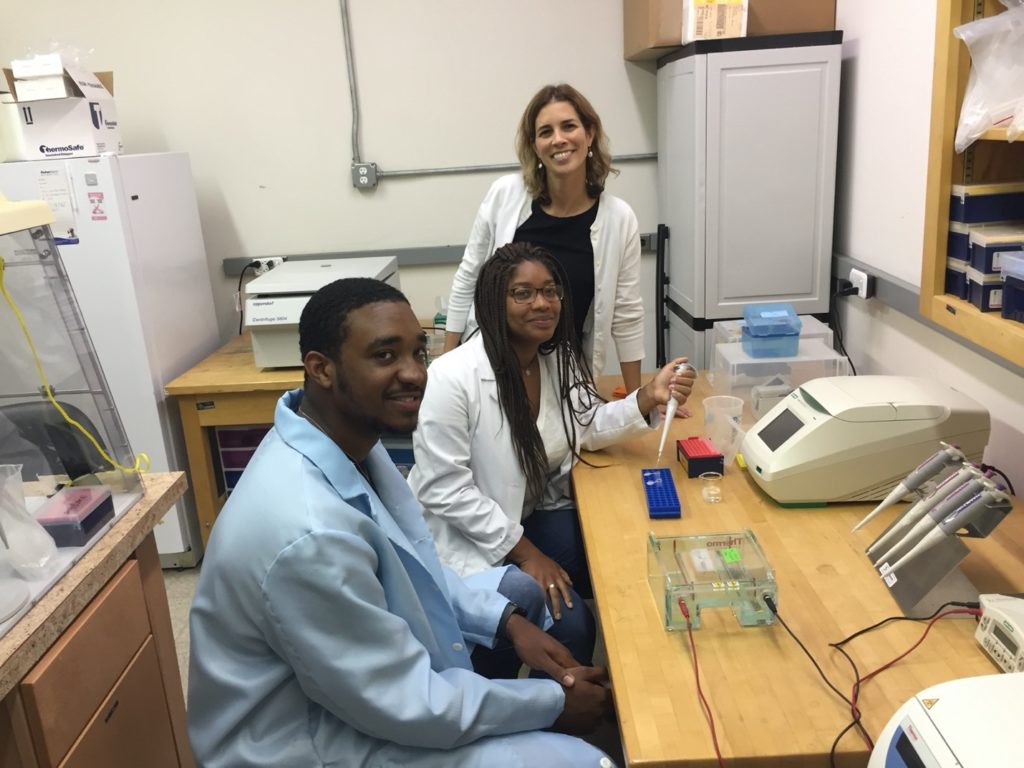NOAA LMRCSC professor awarded national research grant
September 30, 2020

When it comes to understanding marine life and the characteristics of dolphins, professor Carolina Bonin Lewallen, Ph.D is the go to expert on the topic. The Hampton University and NOAA LMRCSC faculty member recently won a research grant totaling $300,000. The newly awarded funding provided by The National Science Foundation will be used to conduct research on dolphin skin molecular markers, which are studied to help reveal the adaptions of dolphins’ lives at sea.
As a means to further understand the molecular markers that are in dolphin skin, one must study the epigenetics of the species. According to the National Human Genome Research Institute, epigenetics is described as the study of the heritable or phenotypical changes caused by the activation and deactivation of genes without any change to the underlying DNA sequence of the organism. More specifically, Dr. Lewallen will focus on MicroRNAs which are a type of epigenome. MicroRNA research is a trailblazer in the field of molecular biology and it applies to both the natural and biomedical fields. With this research grant, Dr. Lewallen hopes to expose Hampton University and LMRCSC students to this revolutionary area of knowledge.
“My research focuses on the dolphin’s epigenome,” stated Dr. Lewallen. The epigenome consists of molecules that can turn genes “on and off” and control the production of protein levels in cells. It is because of these characteristics that they are considered the “orchestrators” of the genome.”
Due to living in an aquatic environment, one may forget that dolphins are mammals. And like all mammals, dolphins have very fine hair, or “whiskers” when they are in utero; however, once a dolphin is born, they lose the hair as a form of adaptation to living in the water. In addition, scientists have also discovered that dolphins “slough,” or renew their skin at a very high rate, resulting in a very smooth skin texture, which is ideal for their aquatic living environment. Dr. Lewallen’s research will look closely at these characteristics and their underlying molecular mechanisms.
“Skin is often a good indicator of the marine mammal’s health, stated Dr. Lewallen. “In addition, having an in-depth knowledge of their skin allows for us to have a better understanding of human skin. The more we know about dolphins, the better equipped we will be in understanding human skin and its diseases.”
Although not a novice to marine science, Dr. Lewallen is in the early stages of her academic career, which was one of the factors in her earning the science foundation’s grant. The funding award was provided by The National Science Foundation’s HBCU-UP program. The HBCU-UP program provides funding to early career professors who want to establish their research labs at HBCUs. The initiative was created to fortify STEM education at historically black colleges and universities and provide opportunities to underserved students. The research funded by this award will not just provide opportunities to students, but it will be used to contribute to Hampton University’s mission of excellence in teaching and cutting edge science.

